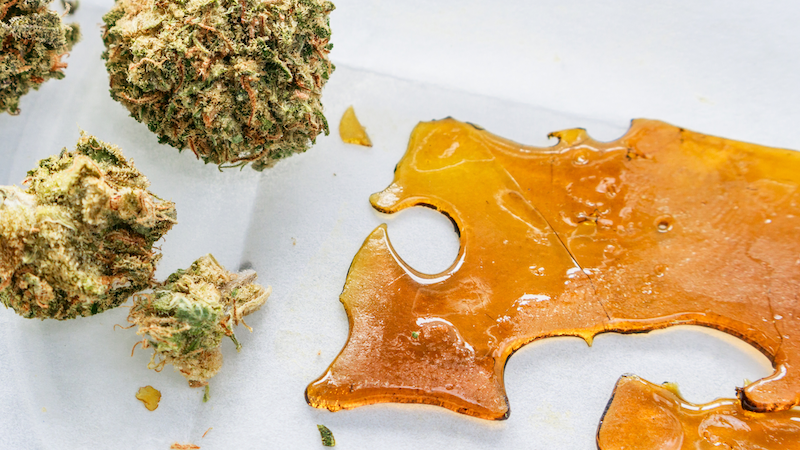Cannabis isn’t new. Its earliest roots go back to ancient times.
However, cannabis’ introduction to the mainstream as a legal, recreational, adult-use product is new. Therefore, adult consumers have much to learn, and knowledge is power.
One vital factor to understand about cannabis is how not all strands or types are identical. They offer different effects and have unique compositions. Crucial to those very compositions are cannabinoids.
Specifically, the cannabinoids in a given strand or type of cannabis will impact its results and your experiences with them.
Phasal Dispensary is a leader in the New Jersey cannabis space, and the following article on cannabinoids will help you make more informed decisions on your related purchases.

What Are Cannabinoids
A class of biological compounds that attach to cannabinoid receptors, cannabinoids are primarily sourced from cannabis plants (e.g., sativa, indica, and ruderalis) [1].
The cannabis plant produces between 80 and 100 cannabinoids, the most prevalent being delta-9-tetrahydrocannabinol (THC) and cannabidiol (CBD) [2].
Here are the three cannabinoid classifications:
- Phytocannabinoids naturally occur in the cannabis plant and form through decarboxylation [3].
- Endocannabinoids are neurotransmitters comprised of lipids. They bind to cannabinoid receptors and formulate the endocannabinoid system (which we’ll discuss later) [4].
- Synthetic cannabinoids are human-made. They’re sprayed on dried, shredded plant material to be smoked or vaped for mind-altering effects[5].
What Are Different Types Of Cannabinoids?
THC (Tetrahydrocannabinol) is the most well-known cannabinoid. It’s responsible for the psychoactive response one feels after smoking, vaping, or eating cannabis products. THC can help reduce anxiety, induce hunger in people struggling with their appetite, reduce nausea in cancer patients, soothe inflammation, etc. [6].
While recreational cannabis products containing THC are legal in states like New Jersey, anything with over 0.3% THC is illegal federally.
CBD is the other “mainstream” cannabinoid most prevalently found in cannabis products. It doesn’t contain any psychoactive effects. It is mostly used for its healing properties, treating inflammation, migraines, chronic pain, autoimmune diseases, etc. [7].
While CBD does cause a psychoactive response, it can contain trace amounts of THC. CBD is legal on a federal level as long as the THC amount doesn’t exceed 0.3%.
Other cannabinoids (e.g., CBG, CBN, and THCV) offer similar benefits to THC and CBD, helping increase appetites, reduce nausea, stifle anxiety, etc. [8].
How Do Cannabinoids Interact With The Endocannabinoid System (ECS)?
The endocannabinoid system (ECS) is a comprehensive network of densely packed cellular receptors and chemical signals throughout the human body and brain [9].
CB1 receptors–the brain’s cannabinoid receptors–are more prevalent in the brain than other receptors. They’re essentially traffic cops, moderating how much activity goes on with other neurotransmitters. They regulate and provide immediate feedback, adjusting the activity based on what’s necessary, whether alertness, hunger, or temperature.
Our bodies produce endocannabinoid molecules to stimulate the cannabinoid receptors. They are similar in structure to the cannabis plant. When we consume cannabis, it overtakes this “cellular machinery.”
CB2 receptors are in immune tissues. They’re critical to our immune system and help modulate intestinal contraction, pain, and inflammation in certain bowel conditions.
Medical Applications Of Cannabinoids
Here’s a list of medical conditions that can be treated by cannabinoids [10]:
- Amyotrophic lateral sclerosis (ALS).
- Crohn’s disease.
- Alzheimer’s disease.
- Epilepsy and seizures.
- Multiple sclerosis and muscle spasms.
- Glaucoma.
- Severe and chronic pain.
Look no further than Rebecca Sewell’s story with medical cannabis for a medical success story with cannabis. She suffered from Chronic Regional Pain Syndrome and needed a walker to get around–so intense was her pain [11].
After being failed by most medical treatments, Rebecca turned to recreational–and then medical–cannabis. She eventually no longer needed her morphine pump and could manage her pain without a wheelchair or walker.
Charlotte Figi is our next protagonist, who suffered from Dravet’s Syndrome (a rare version of epilepsy) since she was three. She suffered 300 grand mal seizures weekly and needed to be put in a medically induced coma.
Once cannabis was introduced to her and her parents by doctors, Charlotte stopped suffering seizures, and the Stanley Brothers–who supplied her with cannabis–changed their strain’s name to Charlotte’s Web.
Walter Rodlund–an 81-year-old everyone calls Grandpa–was a huge lover of the outdoors. Unfortunately, Chronic Obstructive Pulmonary Disease (COPD) left him with shortness of breath, pain, and blood clots in his lungs, preventing him from going outside.
“Grandpa” could lower his medical dosage once he started using CBD hemp oil. It increased his lung capacity, and he returned to hunting, fishing, and gardening.
Legality Of Cannabinoids In New Jersey
Cannabis is legal for medical and recreational usage in New Jersey. You must be at least 18 years old to receive a medical prescription for cannabis in the state. You must be 21-plus to purchase recreational cannabis in New Jersey.
Recreational customers can legally purchase up to one ounce from a dispensary like Phasal. We won’t sell more than that at once, as we uphold all statewide regulations.
Phasal works tirelessly to uphold all regulations and standards that New Jersey state dictates. It’s important to keep our customers safe and ensure that cannabis avoids stigmas that place it in any nefarious or criminal light.
Using Cannabinoids Safely
Cannabis is typically safe, thus its growing legality throughout the US. However, you don’t want to overdo it, much like anything with inebriating effects.
First and foremost, we must stress the importance of not smoking and driving. Also, overindulgence–and consuming cannabis with too much frequency–can lead to adverse side effects.
Moderation is your friend with cannabis. Always err on the side of caution.
Whether smoking a joint, vaping, or dosing edibles, remember that you can always have more later if you don’t immediately achieve the desired results. Conversely, you can’t turn back once you take things too far initially, potentially causing paranoia, anxiety, etc. So, first-time users should start by taking a toke or two and see how they feel, then adjust.
This will be less of an issue with non-psychoactive cannabinoids like CBD. Still, you don’t want to go too heavy on CBD usage because it can dull the healing effects.
Conclusion
Cannabinoids are the compounds found throughout the cannabis plant. Some are psychoactive, while others aren’t. They all present potential healing effects but also have side effects when users overindulge.
The more you know about cannabinoids, the more responsibly you can use them and harness their benefits.
Want to learn more about cannabinoids and cannabis products? Reach out to Phasal Dispensary today with inquiries about our diverse product line.
Sources
- https://www.ncbi.nlm.nih.gov/books/NBK556062/#:~:text=Cannabinoids%2C%20broadly%20speaking%2C%20are%20a,Cannabis%20indica%2C%20and%20Cannabis%20ruderalis.
- https://adf.org.au/drug-facts/cannabinoids/#:~:text=Research%20has%20found%20that%20the,about%20300%20non%2Dcannabinoid%20chemicals.&text=The%20two%20main%20cannabinoids%20are,)%20and%20cannabidiol%20(CBD).
- https://www.news-medical.net/health/Phytocannabinoids.aspx
- https://www.ncbi.nlm.nih.gov/pmc/articles/PMC3481537/#:~:text=The%20endocannabinoid%20system%20(ECS)%20in,actions%20throughout%20the%20nervous%20system.
- https://nida.nih.gov/publications/drugfacts/synthetic-cannabinoids-k2spice
- https://www.webmd.com/a-to-z-guides/medical-marijuana-faq
- https://www.webmd.com/diet/health-benefits-cbd#:~:text=Unlike%20its%20cousin%20THC%2C%20CBD,diseases%2C%20depression%2C%20and%20anxiety.
- https://www.nccih.nih.gov/health/cannabis-marijuana-and-cannabinoids-what-you-need-to-know#:~:text=Are%20cannabis%20or%20cannabinoids%20helpful,loss%20associated%20with%20HIV%2FAIDS.
- https://www.health.harvard.edu/blog/the-endocannabinoid-system-essential-and-mysterious-202108112569
- https://www.mayoclinic.org/healthy-lifestyle/consumer-health/in-depth/medical-marijuana/art-20137855
- https://www.theherbalclinicmd.com/medical-marijuana/7-inspiring-medicinal-marijuana-stories-from-real-life-patients
